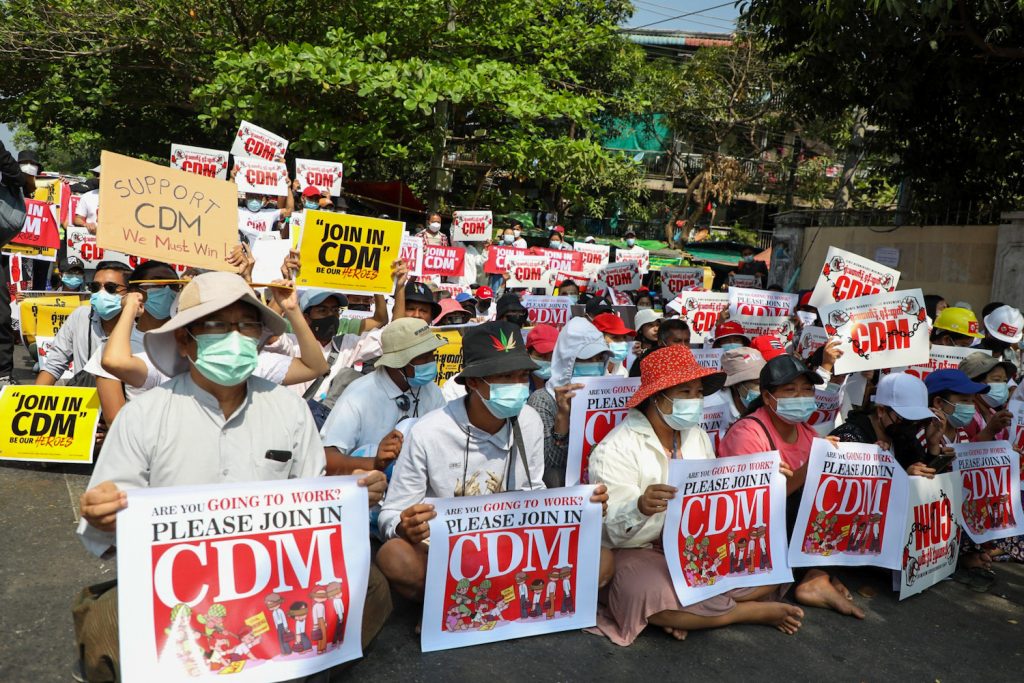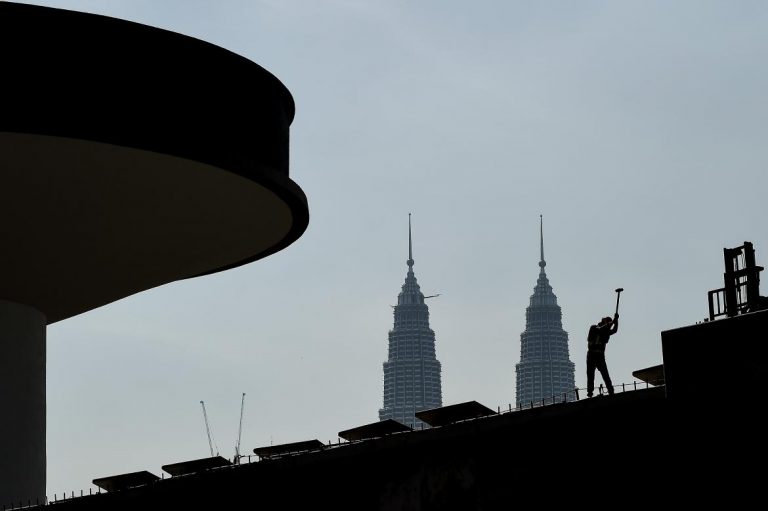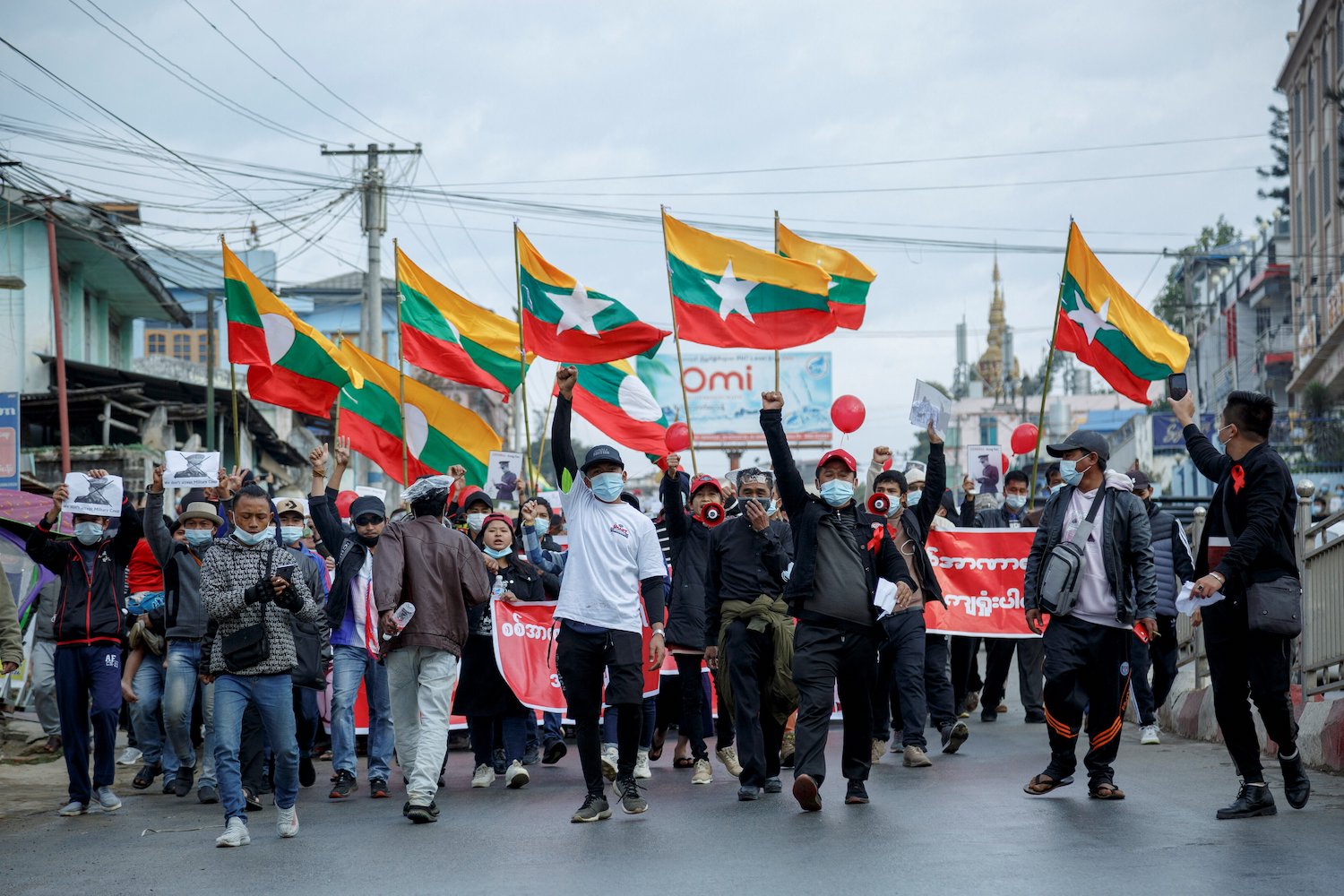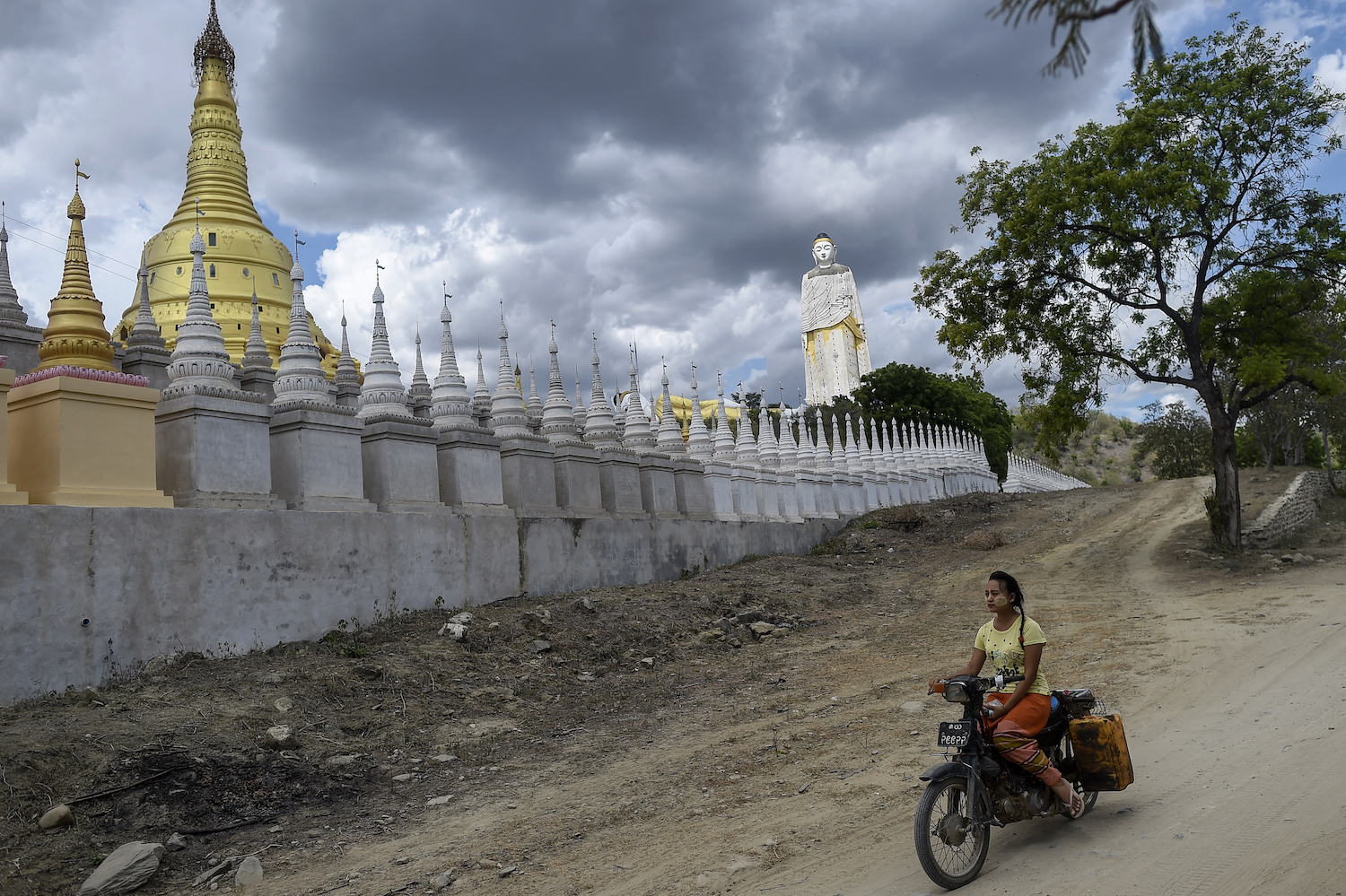A new Central Bank deputy governor has lashed out at protesters and bank staff who have joined the Civil Disobedience Movement and forced private banks to close their branches, and claimed the military regime is “doing its best” and should be given more time.
By FRONTIER
Central Bank of Myanmar deputy governor U Win Thaw has criticised protesters for targeting the banking sector and warned of potential long-term consequences for the economy unless branches are able to reopen soon.
Win Thaw also offered a defence of Senior General Min Aung Hlaing’s military junta, which appointed him deputy governor shortly after the coup, insisting the new regime was “doing its best” and should be allowed to get on with the job of developing the country.
He also claimed that protesters should wait one year to see whether Min Aung Hlaing sticks to his promise of handing over power to an elected government before taking to the streets to protest.
The interview is one of the first with an official appointed by Min Aung Hlaing since the military rounded up members of the democratically elected National League for Democracy government and took power.
The coup has sparked massive protests across the country, with hundreds of thousands taking to the streets in Yangon alone over the past 12 days.
Meanwhile, tens of thousands of public and private sector workers have joined the Civil Disobedience Movement, refusing to work until the elected government is reinstated.
Private banks have been forced to close most of their branches since the military coup because rank-and-file staff and some management have joined the CDM. As a result, depositors have been unable to withdraw money from their accounts and some businesses are facing cash-flow problems. International transactions have ground to a halt.
In an exclusive interview with Frontier, Win Thaw conceded that if private banks remained closed for an extended period it would have a significant impact on the economy.
“Banks play an important role in the economic development of a country. If a boycott by employees is long term, it would have a big negative impact on the economy,” Win Thaw said.
But he laid the blame squarely on protesters and boycotting workers rather than the military, which sparked the protests by seizing power from a democratically elected government.
“People can demonstrate for whatever they believe in, but they should not disrupt the banking system; I hope it ends soon,” he said, referring to the protests.
“The banking system is needed to develop the country’s economy. Bank staff shouldn’t refuse to come to work,” he said. “Even though banks have been ordered to meet their responsibilities and the CBM is meeting its responsibility as best as it can, people are pursuing this CDM – it’s like they are destroying their own country’s economy.”
Win Thaw is one of two new deputy governors that the junta, known as the State Administration Council, appointed on February 4. The previous day the military appointed a former Tatmadaw officer, U Than Nyein, to lead the Central Bank.
Their predecessors were removed following the coup and the whereabouts of one of the former governors, U Bo Bo Nge, are unclear.
Win Thaw defended his decision to accept a position offered by the military regime, which many in Myanmar and abroad consider to have seized power illegitimately.
“I am a civil servant. I will serve the country as best I can. Policies differ from one government to another but they should have a common goal, which is to develop the country and not trouble the people.
“When looking at the current government and appointed ministers, we can see they are doing their best. And the commander-in-chief has said repeatedly he will not hold power for a long time … If they don’t fulfill their promise after one year, that’s the time to protest,” he said. “Now people are protesting within days … there are many other ways to show disagreement in a democratic way.
People should find forms of protest that don’t hurt the economy and allow for economic development, he added. “[Private] banks are not part of the government; they support the people’s own economic development.
“In foreign countries, there are many intellectuals who know how to express what they want in a democratic way. If people behave like them, the junta may fulfil their desire or negotiate with them and there may not be a severe impact on the country,” he said.
Win Thaw said the CBM has prepared plans to ensure the banking system is able to function even if the protests continue, though he declined to offer details.
“We have plans A, B and C to ensure that the financial system does not come to a halt. If plan A doesn’t work, we will use plan B, and if it doesn’t work, there is plan C,” he said. “But I can’t tell you what those plans are right now.”







